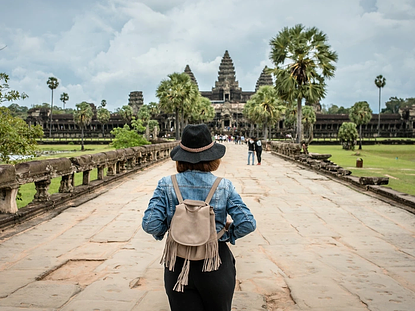Possession of a dwelling, apartment, or condo.

Delving into property ownership in Thailand encompasses numerous alternatives and factors to consider. Foreign individuals keen on Property ownership in Thailand can be involved in exploring leasehold agreements and condominium ownership., and the creation of Thai companies. Lease agreements typically have a duration of 30 years, with the opportunity for renewal, offering substantial flexibility for land utilization. Condominium ownership allows foreigners to own units in their name but within specific ownership limits. Creating a Thai company is a viable choice, albeit with the requirement for a majority of Thai shareholders. Land ownership restrictions exist for foreigners, emphasizing the need for alternative arrangements. Obtaining legal counsel is essential, considering the intricacies of property regulations that can evolve and diverge based on location and property type. Maintaining up-to-date knowledge and consulting with experts are essential elements for a successful and legally compliant property investment journey in Thailand.
Foreigners have distinct regulations and choices when it comes to property ownership in Thailand. The following are the essential factors to take into account:
1. Leasehold: Foreign individuals have the opportunity to acquire property in Thailand by entering into lease agreements.. Generally, Land lease agreements typically have a duration of 30 years, and they often come with the option to renew for an additional 30 years. During this period, You are permitted to utilize the land for diverse purposes, such as constructing a residence or villa that can be registered under your own name.
2 Condo Possession: Foreign individuals have the right to personally own condominiums in Thailand under their own names as long as foreign ownership does not exceed 49% of the overall floor area in the condominium building. This represents one of the simplest methods for foreign individuals to possess property in Thailand.
3. Foreign nationals have the option to establish a Thai company as a method for owning land and real estate. However, Thai law requires that Thai citizens own more than 50% of the company's shares. As a result, foreigners typically hold a minority share of ownership. This approach is frequently employed for larger investments and commercial real estate.
4. Limitations on Land Ownership: It's crucial to emphasize that Thai law prohibits foreigners from owning land under their name. Land ownership is typically reserved for Thai citizens.. Hence, the majority of property transactions related to land necessitate alternative arrangements, such as long-term leases or company ownership.
6. Legal Assistance: Given the intricate nature of property regulations in Thailand, it is advisable to seek legal counsel when engaging in property transactions. Engaging in consultations with proficient lawyers and real estate agents experienced in managing international property transactions can assist in guaranteeing compliance with all legal prerequisites.
7. Changing Regulations: Laws governing property ownership and regulations Property ownership laws in Thailand may change over time, highlighting the significance of staying updated on the latest legal requirements. and seeking guidance from local authorities or legal professionals when contemplating property investments.
Keep in mind that property laws in Thailand can be intricate, and the details may differ based on the specific location and type of property you're considering. It's crucial to undertake comprehensive research and enlist the guidance of professionals to effectively and lawfully navigate the process.


